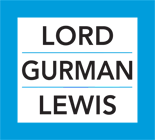Legal Hiring—The Need for Speed
by Jon Lewis
As a veteran legal recruiter I have on occasion been asked by law firms and in-house legal departments how they can more frequently and efficiently succeed in getting the kind of strong candidates they want. In response, one important piece of advice I often give is simply"move faster”. Once they have identified a candidate they like, many employers would be well served by completing the interview process and extending an offer more promptly than they sometimes manage to do.
I realize that it may seem self-serving for a recruiter to advise clients to make their hiring decisions more rapidly. But the fact is that there are a number of significant advantages to be gained by moving the interview process/getting offers in front of desirable candidates as quickly as possible, including the following:
- Showing The Love. Contrary to popular belief in some circles, lawyers are people too. As such, most are subject to the same emotional triggers as everyone else, including the desire to feel wanted. And few things are more effective in making candidates “feel the love” than quick, positive feedback after interviews followed soon thereafter by an offer. Momentum is a powerful force in legal recruiting, and I have on many occasions seen candidates who were initially very excited about an opportunity lose interest after a client allowed the interview process to linger for too many weeks or months. While I am unaware of any formal studies on the subject, I can confidently say based on my own 19 years of recruiting experience that the percentage of offers accepted is significantly higher among candidates who receive such offers quickly, as opposed to those who are made to wait.
- Getting A Leg Up On The Competition. Employers can generally assume two things about candidates they like based on a resume and initial interview: (1) the candidate is probably also considering other options at the same time, and (2) other potential employers will like them as well. Moving promptly past the interview stage to an offer increases the chances that an employer can seal the deal with a candidate before someone else does.
- Getting Quicker Responses To Offers. Employers who move quickly through the interview process are in a better position to ask candidates who receive an offer to respond sooner thereto. If it takes, say, three months from the time a resume is submitted until an offer is extended it becomes much harder to reasonably insist that the candidate respond to that offer within a short time frame.
- Avoiding The Temptation To Seek Perfection. A saying of Mark Zuckerberg’s (which was actually painted on a wall at Facebook) is “Done is better than perfect”. That sentiment certainly rings true in the legal recruiting context. I have on more than one occasion seen clients lose out on candidates they were genuinely interested in because they elected to hold out to see if someone even better might possibly come along. Clients who are seduced by the notion of waiting for the “perfect” candidate and therefore drag their heels on others who are merely “perfectly good” may be left holding the bag on an empty position far longer than is necessary or prudent.
- Keeping Recruiters Engaged. Every day, legal recruiters must decide which among many available searches they are going to devote their attention to. For that reason, legal employers who use recruiters are in a sense competing with other employers not only for strong candidates, but also for the attention of the recruiters whose job it is to locate such candidates. And, all other things being equal, recruiters are more likely to work on searches for clients who they know move decisively with respect to the candidates they want.
- Saving Your Own Time. One comment which I have at times heard in response to my recommendation to “move faster” goes like this: “Of course we’d like to do that, but hiring decisions are very important to us and we have to be careful. We need to go through our internal process, and that takes time.” That’s fair enough, at least up to a point. However, I note that the law of diminishing returns absolutely applies in the context of legal recruiting. For example, it is of course true that significant benefit can be derived by having a candidate interview with those people they will be working with most closely, and that can sometimes require more than one round of interviews. But the marginal benefit from additional interviews drops very sharply after a certain point, and I would respectfully suggest that there is much less useful intelligence to be derived from a third, fourth, or fifth round of interviews that has not or should not have already been gleaned from earlier rounds. The point here is that many firms and in-house legal departments currently using a multi-stepped, time-consuming hiring process might be pleasantly surprised to find that stream-lining and shortening that process does not materially detract from the quality thereof, but does save time and lead to a higher rate of accepted offers from strong candidates.
